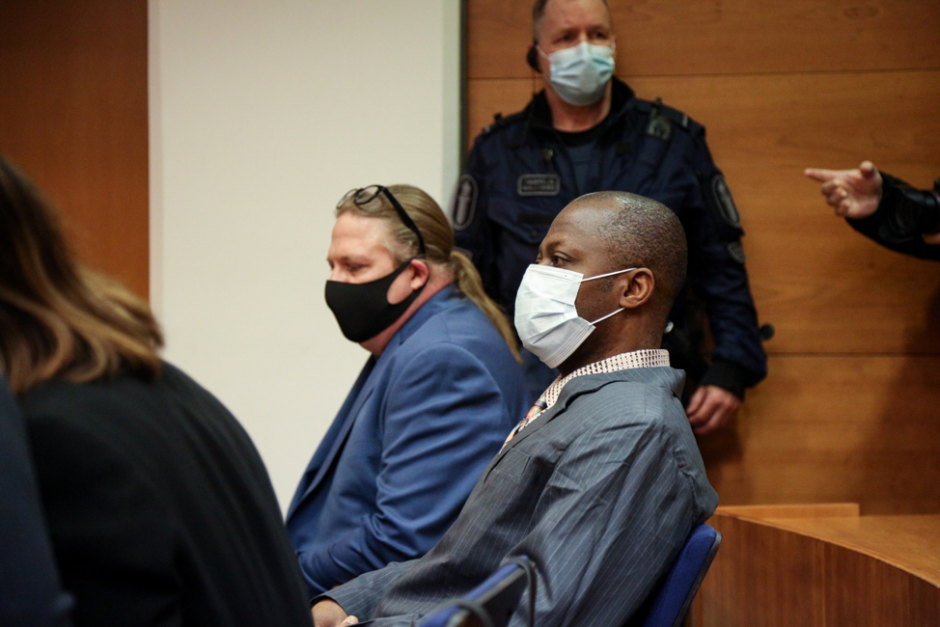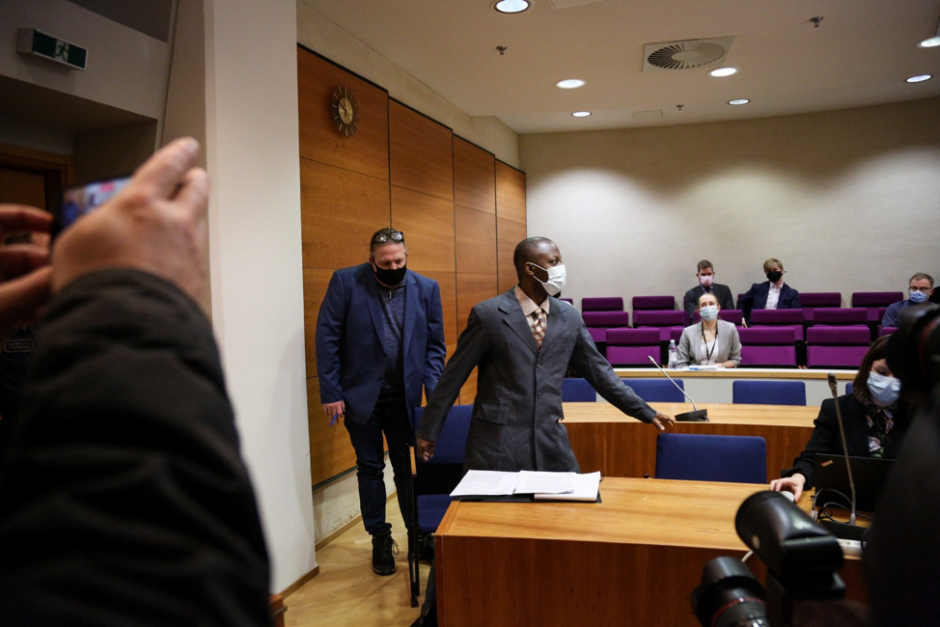
TAMPERE, Finland – The trial of Gibril Massaquoi, a Sierra Leonean former rebel commander accused of committing war crimes in Liberia, began on Wednesday in the Finnish city of Tampere.
By Saila Huusko, with New Narratives
Massaquoi, 51, entered the Pirkanmaa District Court shortly after 10 am local time, wearing a gray pinstripe suit and a face mask. The session commenced with an official reading of the charges leveled against him by State Prosecutor Tom Laitinen.
A former commander of the Revolutionary United Front (RUF), his charges include war crimes and crimes against humanity between 1999 and 2003. He is accused of committing and commanding the murder and rape of civilians. Among the murder charges is the killing of dozens of civilians and raping of seven women in the village of Kamatahun, Lofa County. The charges also include several allegations of cannibalism.

As the charges were being read, Massaquoi’s attention was fixed on his court-assigned translator sitting next to him. A translator is tasked with interpreting the Finnish proceedings into English for him throughout the trial.
Massaquoi’s defense team denies the charges. “The defense is based on written evidence,” said Kaarle Gummerus, his lead lawyer, in a brief response. Speaking to Finnish reporters outside the courtroom, Gummerus repeated the defense’s argument that Massaquoi was not present in Liberia during the time that the crimes allegedly took place.
The first part of the trial in Finland will conclude on February 12. After this, the court will travel to Liberia to hear witnesses there. Laitinen told reporters that this was found to be the most suitable solution, as moving the relatively small court to Liberia was more manageable than moving the extensive number of witnesses from Liberia to Finland.
“We will hear witnesses of both the prosecution and the defense,” Laitinen said. “It will be interesting to see, once we get to speak with the witnesses in the courtroom, how the narratives will play out.”
Massaquoi is a former high-ranking officer of the Revolutionary United Front (RUF) but was not prosecuted for his role in Sierra Leone’s civil war, after he was given immunity for his role as an informant of the United Nations-backed Special Court for Sierra Leone (SCSL). He was instrumental in the SCSL’s convictions of other former RUF commanders and former Liberian president Charles Taylor, who is now serving a 50-year sentence for aiding and abetting war crimes in Sierra Leone. In 2006 Finland signed a law allowing the placement of SCSL informants in the northern European country. Massaquoi arrived in 2008, and settled in Tampere, Finland’s third largest city, some two hours away from the capital Helsinki, according to a report by public broadcaster YLE.
In 2018, an investigation into his alleged crimes was launched by Finland’s National Bureau of Investigation (NBI). Civitas Maxima, a victims’ group, based in Switzerland and Global Justice and Research Project (GJRP), based in Liberia, tipped off the NBI to Massaquoi’s alleged crimes on Liberian soil. He was arrested in March last year and indicted on January 25th this year. NBI said it interviewed several witnesses in Liberia and Sierra Leone, who it says will testify in the West African in coming months.
“The investigation does not solve this case,” added Laitinen, “only that which is said in front of the judge does.”
At the end of Wednesday’s session, Massaquoi was taken to the Tampere jail. The trial continues today.
This story was a collaboration with New Narratives as part of the West Africa Justice Reporting Project
